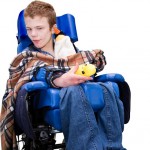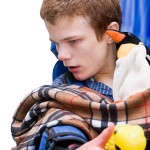
Mike Clark considers some of the challenges of organisational co-production revealed by a study on social prescribing for people living with dementia.
[read the full story...]
Mike Clark considers some of the challenges of organisational co-production revealed by a study on social prescribing for people living with dementia.
[read the full story...]
Down syndrome is the most common cause of learning disability in the UK and increased risk of developing Alzheimer’s dementia is well documented.
In her debut blog, Silvana Mengoni looks at a paper which uses three case studies to consider some interesting trajectories of dementia which raise some interesting questions.
[read the full story...]
Non-epileptic seizures can have a major impact on the quality of life of people affected. Those with an organic, physical cause may be relatively easy to diagnose, and if the underlying cause can be found, it may of course be amenable to treatment and if that treatment is successful, the seizures may stop. Some seizures [read the full story…]

The aim of this paper, written for commissioners, managers, and health decision-makers, was to look at how commissioning works for people with long-term conditions such as dementia. The authors carried out a multisite mixed methods case study research, involving three ‘commissioning communities’ and using interviews, documents, and meeting observations to reach their conclusions. A commissioning [read the full story…]

Fear and anxiety about medical procedures can be a barrier to accessing healthcare for people with learning disabilities. In particular, fear of needles can mean that blood tests may not be able to be taken and this can prove a significant clinical challenge. The researchers in this case study used a changing criterion design, they [read the full story…]

We have posted previously about the challenges faced by people with profound intellectual and multiple disabilities in communication and the ways in which those who support them might use a variety of tools to improve this. Researchers have asked whether it might be possible to look at changes in physiology to provide information on emotions [read the full story…]

Supporting people with profound learning disabilities creates a communication challenge for those in the supporting role raising the question of how best to understand and respond when people do not use words to communicate. We have posted previously about resources available to help with this issue, for example national projects like Mencap’s Involve Me as [read the full story…]

Self injurious behaviour in people with learning disabilities can have a major impact on quality of life, in addition to physical harm. Positive behaviour approaches have been showing some degree of success in supporting people with self injurious behaviour, and this case study investigated the possibility of combining pharmacological strategies with positive behaviour support plans. [read the full story…]

Studies have suggested a higher incidence of mental health problems in people with learning disabilities, although there are some differences in estimates, which have varied in studies looking at people with learning disabilities who also have a co-morbid psychiatric disorder from 14 to 39%. There is also evidence of increased likelihood of family members and [read the full story…]

Erotomania, sometimes known as ‘de Clerambault’s syndrome’ is a rare disorder, classified under the group of delusional disorders, where a person wrongly believes another person is in love with them. The object of the delusion is often a person of higher social status. The person with the disorder will make advances to the object of [read the full story…]